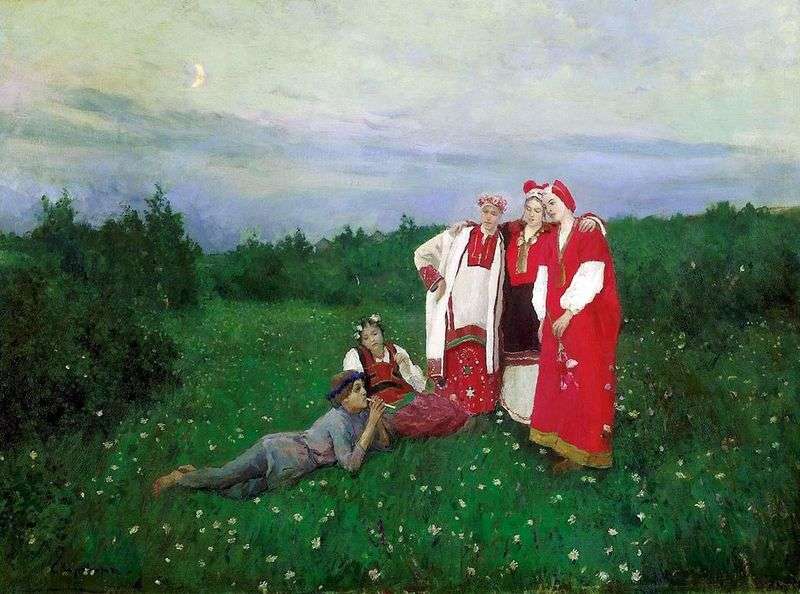
1885 was an important milestone in the work of Korovin – the artist gets acquainted with the famous patron Savva Mamonov and becomes a member of his house. The meetings at Mamontov were a concentration of the entire intellectual life of Moscow. Here Korovin gets acquainted with representatives of the “Mighty Handful”, who set as their goal the revival of interest in Russian folk art, that is folklore. After decorating the stage for the opera “The Snow Maiden” by NA Rimsky-Korsakov, the painter was fascinated by folk melodies and hymns.
As a result of all this, a very unusual picture appeared – the Northern Idyll. Inspired by folklore, Korovin decided on a bold experiment: he combined in one artistic space a deep volumetric landscape and flat figures of heroes. Many associate this step with his work in the theater – flat scenery became the basis for experiments in the easel works of the painter.
The plot is not intricate at the same time – three girls in traditional costumes, huddled together, listen attentively to the young shepherd boy improvising on the pipe-pipe. Another girl sits next to her friends – her role is special in this canvas. The figure of the girl can be called a transition in terms of performance – it is like a link between the planar image of other people and a voluminous landscape.
Looking at the picture, some viewers may notice some of its illogicality. Very much the figures of the main characters look alien to the wide plenar space of the Russian field, they seem to be cut out of another kind of work. The artist himself realized this very clearly, and strove to smooth out this heterogeneity of his work, or to distract the audience into separate elements. We see how brightly presented traditional costumes with unique ornaments, you can also see the white flowers that the artist “sowed” the field to achieve a compositional roll with these costumes and achieve at least some relative harmony.
Despite all the controversial points, the painting “Northern Idyll” has become a very important starting point for the future, already expressionist works of Korovin.
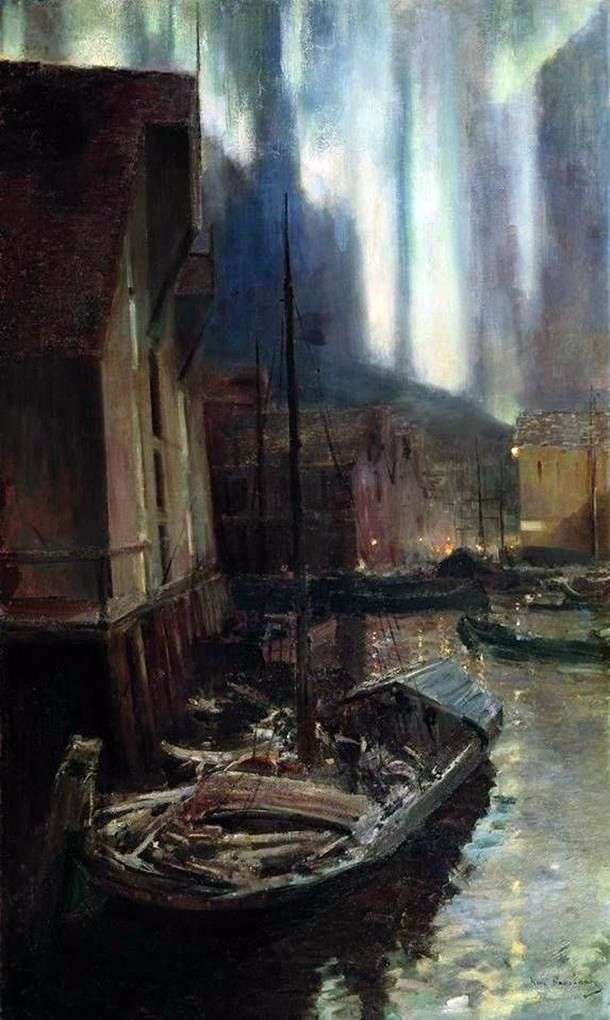 Hammerfest. The Northern Lights by Konstantin Korovin
Hammerfest. The Northern Lights by Konstantin Korovin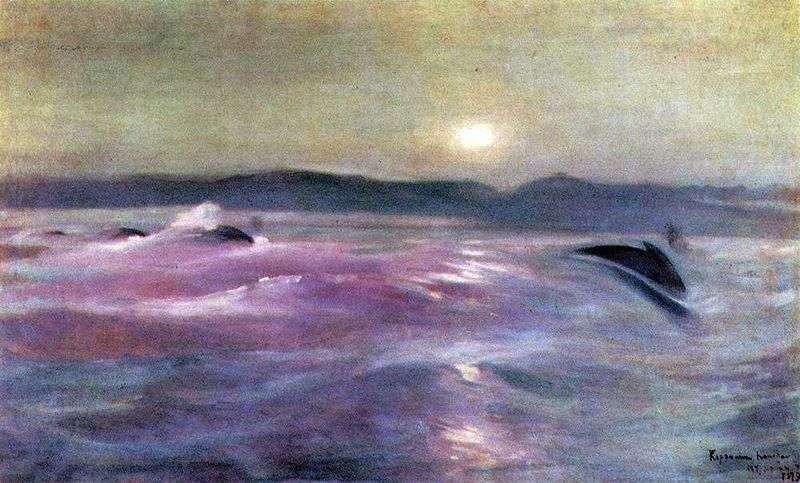 Arctic Ocean. Murmansk by Konstantin Korovin
Arctic Ocean. Murmansk by Konstantin Korovin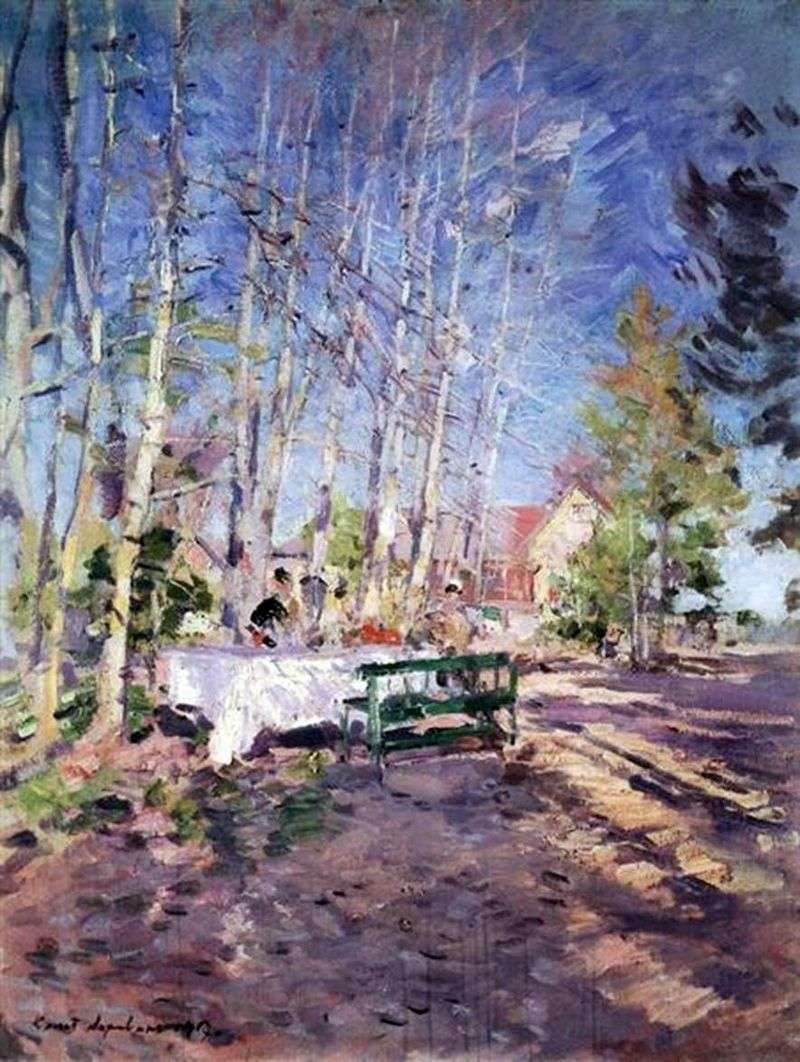 Spring by Konstantin Korovin
Spring by Konstantin Korovin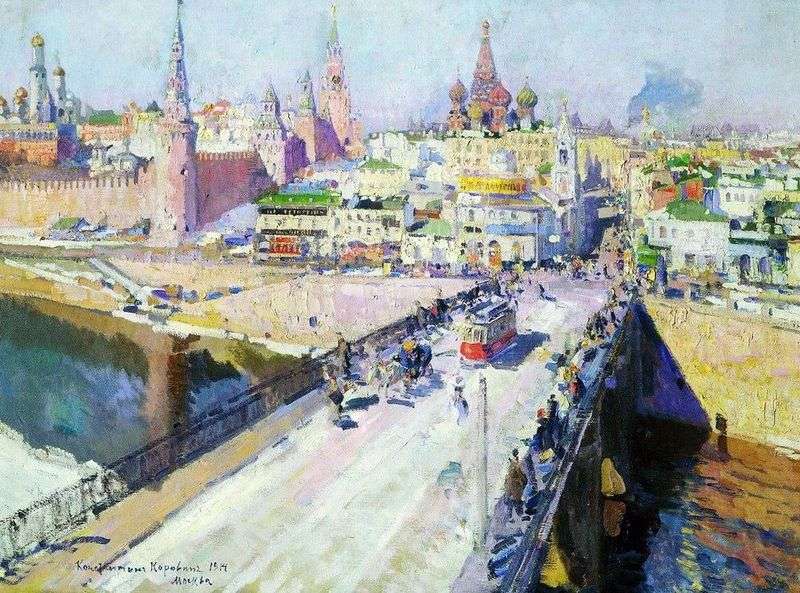 Moskvoretsky Bridge by Konstantin Korovin
Moskvoretsky Bridge by Konstantin Korovin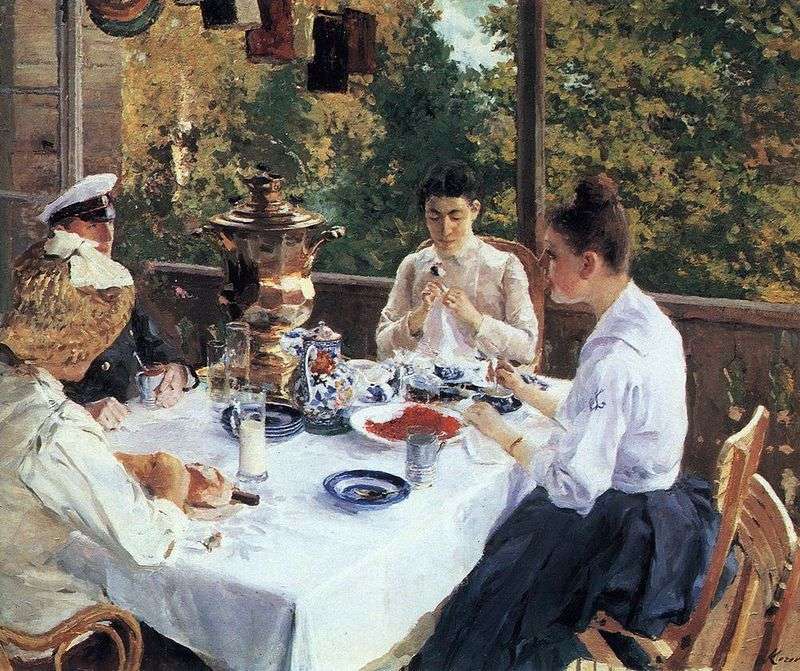 At the tea table by Konstantin Korovin
At the tea table by Konstantin Korovin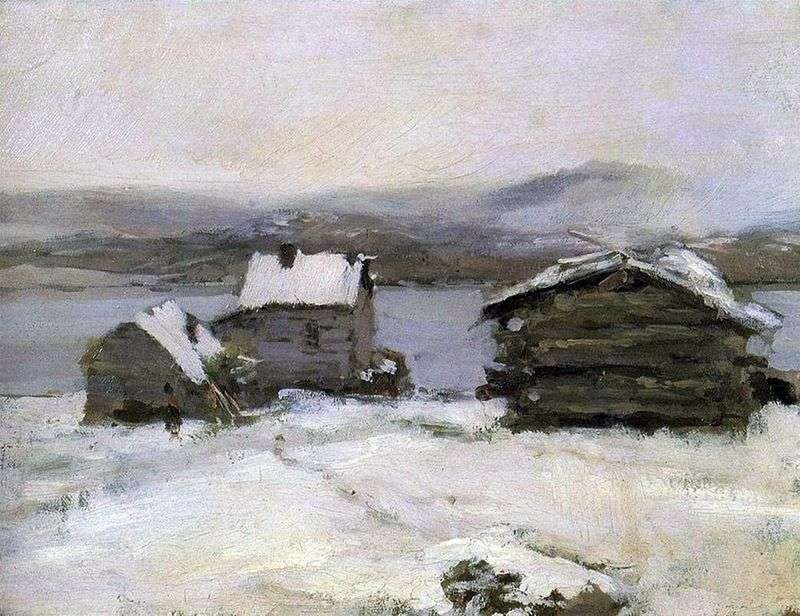 Winter in Lapland by Konstantin Korovin
Winter in Lapland by Konstantin Korovin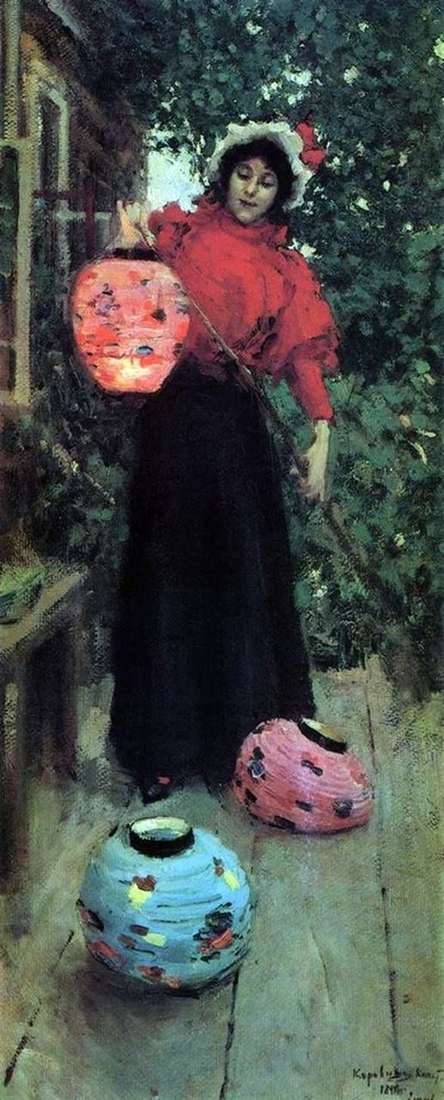 Paper Lanterns by Konstantin Korovin
Paper Lanterns by Konstantin Korovin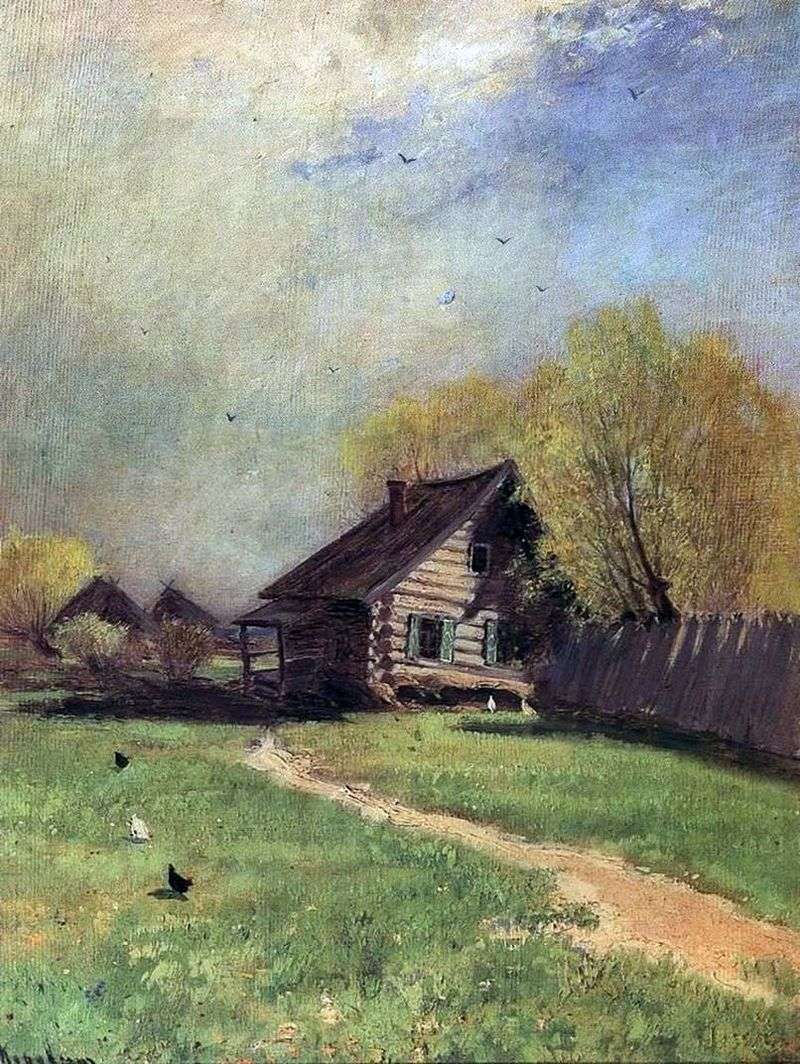 Early Spring by Konstantin Korovin
Early Spring by Konstantin Korovin